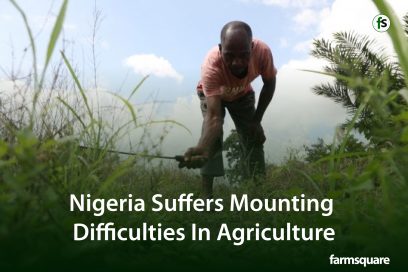- You have no items in your shopping cart
- Subtotal: ₦0
Tela Maize Variety Approval…
Researchers have said about N268 billion spent for pest control in Nigeria will be saved annually using this new variety.
The Federal Government has given the environmental permission to evaluate and open the cultivation of Tela Maize, developed by researchers at the IAR, Institute of Agricultural Research at Ahmed Bello University, Zaria, which is resistant to Fall Army Worms (FAW), which are a moderately drought tolerant strain.
Dr Rufus Ebegba, Director of the National Biosafety Management Agency, NBMA, confirmed this with the issuance of TELA’s maize approval certificate to the Executive Director of the IAR, Professor Ishiyaku Mohammed.
Dr. Ebegba said the approval was confirmed after considering the recommendations of the National Biosafety Committee, the National Biosafety Technical Subcommittee and the risk management report provided by the applicant.
According to him, “given the risks to human health, the agency is convinced that there are no adverse consequences for the conservation and sustainable use of biological diversity. The license does not affect other existing legal requirements.
“The license authorizes the licensee and those covered by the license to sell TELA Maize genetically modified for drought and insect resistance,” he said.
Earlier, during the public display of the new variety, the NBMA Director General warned that the agency would not hesitate to withdraw license if need be.
Professor Ishayaku Mohammed, Executive Director of the Institute of Agricultural Research, at Zaria, Ahmadu Bello University, said in his speech that the new TELA Maize would save the country some 268 billion naira, which is be used for importing insecticides in Nigeria. Insects/pests lead to low productivity or yield of maize.
Ishayaku said the new varieties could also make up for the country’s shortfall in maize demand of 4 metric tonnes. He said that this variety could increase from 1 tons and 16 bags per hectare to 3 tons and 30 bags per hectare in relation to yield.
University Don said: ‘For IAR, the commercial launch of the NBMA Approval for Insect Resistant and Drought Tolerant Maize (TELA MAIZE) is very encouraging.
“Furthermore, it emphasizes IAR’s ability and commitment to providing effective solutions to the agricultural problems facing our farmers and to optimizing food security for Nigerians.
“Next is to better assess the performance of farmers yields across all major maize growers in Nigeria by planting this new variety in the field before making the seeds commercial,” he said.
Dr Canisius Kanangire, Executive Director of AATF, said the approval shows that Nigeria is indeed a leading giant in Africa and ensures that smallholders farmers benefit from the life-changing technologies that are changing agriculture in other parts of the world.
“The Nigerian Government’s approval indicates that we are making good progress, especially as we want to expand the range of options for smallholder farmers on the African continent, taking advantage of affordable technologies that can increase productivity and reduce pest incidents.”
“TELA maize comes at a time when farmers are spending a lot of money to reduce insect and pest infestations and deal with drought problems. With TELA maize, Nigerian farmers will get rid of the regular and continuous chemical spraying that affects their health. Dr Kanangire added that the money saved can be converted to meet the needs of other families.
At the same time, Nigeria’s TELA maize project is part of an international consortium coordinated by AATF, with Bayer, International Maize and Wheat Improvement Center (CIMMYT), and the National Agricultural Research Systems of seven countries including Ethiopia, Kenya, Mozambique, Nigeria, South Africa, Tanzania, and Uganda since 2018. The Project builds on gains from a decade of excellent breeding work to develop conventional climate-smart drought tolerant maize known as Drought TEGO varieties.



